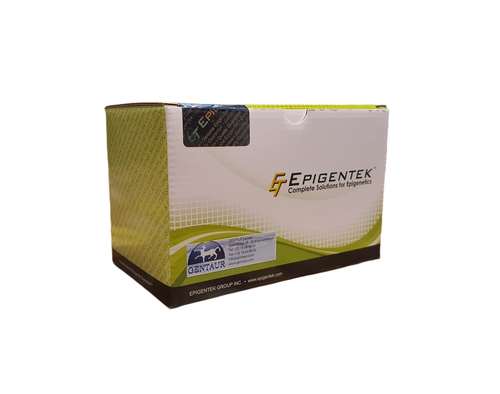Product Description
ENSA Antibody | 55-188 | ProSci
Host: Rabbit
Reactivity: Human, Mouse
Homology: Predicted species reactivity based on immunogen sequence: Bovine, Chicken, Zebrafish, Pig, Rat, Xenopus
Immunogen: This ENSA antibody is generated from rabbits immunized with a KLH conjugated synthetic peptide between 39-66 amino acids from the Central region of human ENSA.
Research Area: Neuroscience
Tested Application: WB, Flow
Application: For WB starting dilution is: 1:1000
For FACS starting dilution is: 1:10~50
Specificiy: N/A
Positive Control 1: N/A
Positive Control 2: N/A
Positive Control 3: N/A
Positive Control 4: N/A
Positive Control 5: N/A
Positive Control 6: N/A
Molecular Weight: 13 kDa
Validation: N/A
Isoform: N/A
Purification: This antibody is purified through a protein A column, followed by peptide affinity purification.
Clonality: Polyclonal
Clone: N/A
Isotype: Rabbit Ig
Conjugate: Unconjugated
Physical State: Liquid
Buffer: Supplied in PBS with 0.09% (W/V) sodium azide.
Concentration: batch dependent
Storage Condition: Store at 4˚C for three months and -20˚C, stable for up to one year. As with all antibodies care should be taken to avoid repeated freeze thaw cycles. Antibodies should not be exposed to prolonged high temperatures.
Alternate Name: Alpha-endosulfine, ARPP-19e, ENSA
User Note: Optimal dilutions for each application to be determined by the researcher.
BACKGROUND: ENSA belongs to a highly conserved cAMP-regulated phosphoprotein (ARPP) family. This protein was identified as an endogenous ligand for the sulfonylurea receptor, ABCC8/SUR1. ABCC8 is the regulatory subunit of the ATP-sensitive potassium (KATP) channel, which is located on the plasma membrane of pancreatic beta cells and plays a key role in the control of insulin release from pancreatic beta cells. This protein is thought to be an endogenous regulator of KATP channels. In vitro studies have demonstrated that this protein modulates insulin secretion through the interaction with KATP channel, and this gene has been proposed as a candidate gene for type 2 diabetes.
 Euro
Euro
 USD
USD
 British Pound
British Pound
 NULL
NULL












